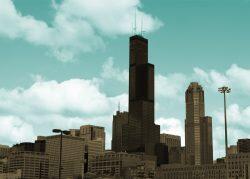Chicago renters are facing ballooning housing costs, with soaring demand driving up prices and leaving many residents struggling to find affordable housing amid the summer surge.
From March to June, median rents in Chicago increased by more than $120, marking a 7.1 percent increase due to low vacancy rates and especially high renter demand due to the approaching start of the school year, Chicago Tribune reported based on data from Redfin and Zillow. A unit that rented for $1,000 per month in March had jumped to $1,120 per month in June, for example, representing a 12 percent increase in just three months.
By June, typical rents in Chicago had reached $2,200 per month, requiring an annual income of $88,000 to be considered affordable. Wages have risen 4.3 percent year-over-year in the Chicago metro area, but they have not kept pace with rent prices, which are up 11 percent from last year.
“Rents are largely unaffordable to the median earner in Chicago,” said Daryl Fairweather, chief economist at Redfin.
In 2022, nearly half of Chicago households were considered rent-burdened, according to the U.S. Census Bureau. That means nearly half of all renters in the city spent more than 30 percent of their income on their housing costs.
“There’s been a huge increase in that income that you need to have in order to have your rent cost, your housing cost, considered affordable,” said Orphe Divounguy, a senior economist at Zillow.
The winner here is landlords, who can expect rent growth to continue, as vacancy was already low when back-to-school apartment shopping started. Chicago has been one of the best markets in the nation for rent growth for over a year. It has outperformed the rest of the country on vacancy and average asking rents, according to J.P. Morgan Chase.
That has had positive effects on retail as well as the multifamily investment sales market. Suburban Chicago has been particularly robust.
San Francisco-based FPA Multifamily recently paid $60 million, or $220,000 per unit for a 270-unit apartment complex in Oak Park, for example, part of the firm’s $350 million nationwide buying spree.
In the West Loop, MZ Capital is under contract to buy a $166-unit complex from LG Development and AEW Capital Management.
— Andrew Terrell
Read more



